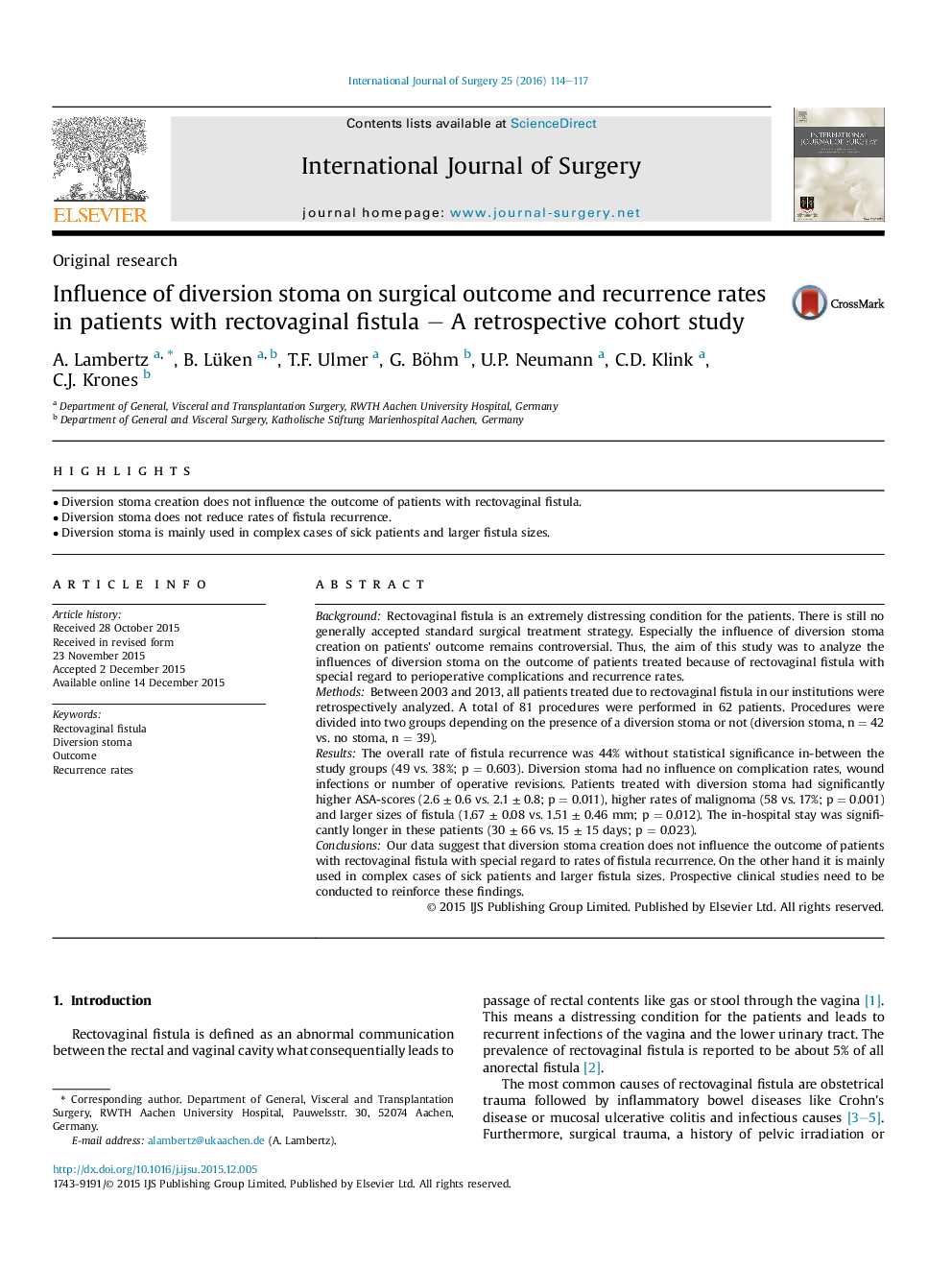| کد مقاله | کد نشریه | سال انتشار | مقاله انگلیسی | نسخه تمام متن |
|---|---|---|---|---|
| 4285598 | 1611963 | 2016 | 4 صفحه PDF | دانلود رایگان |

• Diversion stoma creation does not influence the outcome of patients with rectovaginal fistula.
• Diversion stoma does not reduce rates of fistula recurrence.
• Diversion stoma is mainly used in complex cases of sick patients and larger fistula sizes.
BackgroundRectovaginal fistula is an extremely distressing condition for the patients. There is still no generally accepted standard surgical treatment strategy. Especially the influence of diversion stoma creation on patients’ outcome remains controversial. Thus, the aim of this study was to analyze the influences of diversion stoma on the outcome of patients treated because of rectovaginal fistula with special regard to perioperative complications and recurrence rates.MethodsBetween 2003 and 2013, all patients treated due to rectovaginal fistula in our institutions were retrospectively analyzed. A total of 81 procedures were performed in 62 patients. Procedures were divided into two groups depending on the presence of a diversion stoma or not (diversion stoma, n = 42 vs. no stoma, n = 39).ResultsThe overall rate of fistula recurrence was 44% without statistical significance in-between the study groups (49 vs. 38%; p = 0.603). Diversion stoma had no influence on complication rates, wound infections or number of operative revisions. Patients treated with diversion stoma had significantly higher ASA-scores (2.6 ± 0.6 vs. 2.1 ± 0.8; p = 0.011), higher rates of malignoma (58 vs. 17%; p = 0.001) and larger sizes of fistula (1.67 ± 0.08 vs. 1.51 ± 0.46 mm; p = 0.012). The in-hospital stay was significantly longer in these patients (30 ± 66 vs. 15 ± 15 days; p = 0.023).ConclusionsOur data suggest that diversion stoma creation does not influence the outcome of patients with rectovaginal fistula with special regard to rates of fistula recurrence. On the other hand it is mainly used in complex cases of sick patients and larger fistula sizes. Prospective clinical studies need to be conducted to reinforce these findings.
Journal: International Journal of Surgery - Volume 25, January 2016, Pages 114–117